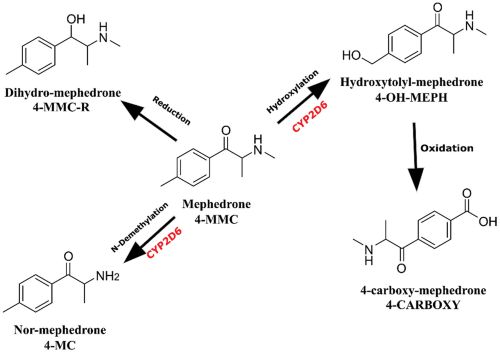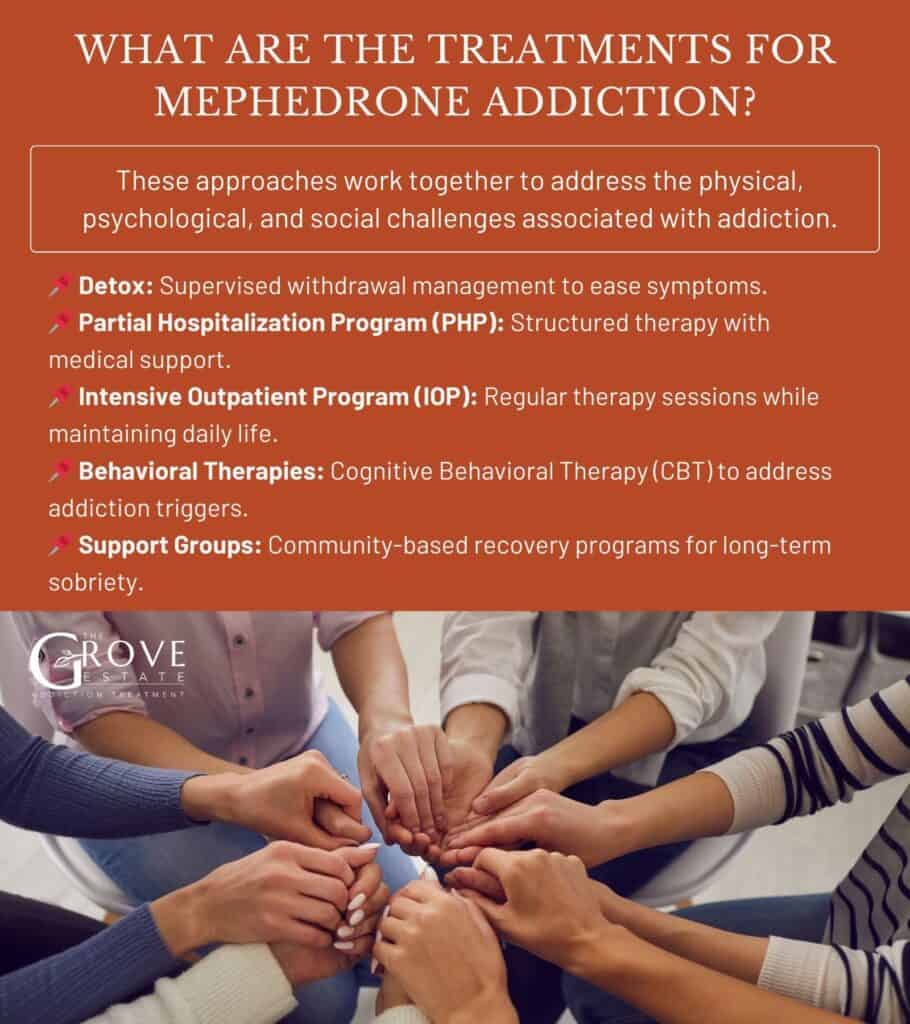
How to get cheap mephedrone online
In today’s fast-paced world of news and information, it’s easy to get caught up in sensational headlines and misinformation spread by politicians and the media. Just last year, the criminalization of the “legal high” mephedrone was pushed through despite a lack of evidence of harm. But what is the truth behind this controversial substance?
Jeremy Sare, a leading expert in drug policy, has uncovered the reality behind the mephedrone hysteria. In his recent report, Sare reveals how misinformation and fear-mongering tactics were used to demonize mephedrone and push for its criminalization.
But the truth is, mephedrone is not the dangerous substance it was made out to be. In fact, studies have shown that it can be used safely and responsibly in certain situations. So why the push to outlaw it?
The answer lies in the political and financial interests at play. By criminalizing mephedrone, politicians can appear tough on drugs while avoiding addressing the real issues at hand. And by spreading misinformation through the media, they can sway public opinion and push through laws that serve their own agendas.
So how can you access mephedrone safely and legally? The answer is simple: order real mephedrone online from reputable sources. By buying from trusted suppliers, you can ensure that you are getting a quality product that has been tested for purity and potency.
Don’t let misinformation and fear tactics cloud your judgment. Educate yourself on the facts about mephedrone and make informed decisions about your own health and well-being. The truth is out there – all you have to do is seek it out.
Mephedrone: Uses, How It Works, Effects and Treatment
Are you curious about mephedrone, its uses, how it works, effects, and treatment? Look no further! In this article, we will delve into everything you need to know about mephedrone and how to get cheap mephedrone online.
Mephedrone, also known as “meow meow” or “MCAT,” is a synthetic stimulant that belongs to the cathinone class. It is a powerful psychoactive substance that produces effects similar to amphetamines and cocaine. Mephedrone works by increasing the levels of neurotransmitters such as dopamine and serotonin in the brain, leading to feelings of euphoria, increased energy, and enhanced mood.
However, mephedrone can also have negative effects on the body and mind. Short-term effects of mephedrone include increased heart rate, elevated blood pressure, paranoia, anxiety, and insomnia. Long-term use can lead to addiction, cognitive impairment, and damage to internal organs.
If you or someone you know is struggling with mephedrone addiction, it is crucial to seek treatment as soon as possible. Treatment for mephedrone addiction typically involves therapy, counseling, and support groups to help individuals overcome their dependence on the drug.
But how can you get cheap mephedrone online if you are interested in experimenting with it? The key is to only order real mephedrone from reputable sources. Make sure to do your research and read reviews from other customers before making a purchase. Additionally, be aware of the legal implications of buying mephedrone online, as it is illegal in many countries.
In conclusion, mephedrone is a powerful stimulant with both positive and negative effects. If you are considering trying mephedrone, make sure to educate yourself on its uses, how it works, effects, and treatment options. And remember, always order real mephedrone from trusted sources to ensure your safety and legality.
What Is Mephedrone?
Mephedrone is a synthetic drug that creates feelings of energy and euphoria, similar to cocaine or MDMA, and is widely used recreationally in party settings. It is sold in forms such as powder, tablets, and capsules, making it easy for people to take by swallowing or snorting. This accessibility, combined with its stimulating effects, has made it popular in clubs and festivals, though it carries significant risks.
What Are the Uses of Mephedrone?
The uses of mephedrone are primarily recreational, though it has limited or no medical applications. Recreationally, mephedrone is used for its stimulating and euphoric effects, making people feel more energetic, alert, and sociable. This has made it popular in party and club settings. Users report that the drug helps them feel confident and enhances their mood, but this repeated use leads to addiction, as individuals continue taking it to maintain the desired effects.
The short duration of its effects encourages frequent dosing, which increases the likelihood of dependency. According to Papaseit et al. in the study “Mephedrone: assessment of health risks and harms,” this pattern of use is associated with significant risks, including physical harm and psychological dependence.
What Are the Street Names for Mephedrone?
The street names for mephedrone include terms like Meow Meow, MCAT, Drone, White Magic, and Bubbles. These names are commonly used in social or illicit settings to refer to the drug without directly mentioning its chemical name. Such nicknames help to obscure its identity, making it easier for individuals to discuss or purchase it discreetly. These street names highlight the informal and illegal nature of mephedrone’s use in recreational contexts.
How Does Mephedrone Work?
Mephedrone works by increasing dopamine, serotonin, and norepinephrine levels in the brain. It blocks the reuptake and promotes the release of these chemicals, leading to its stimulating and mood-enhancing effects. This action is similar to drugs like MDMA and methamphetamine, as described by Luethi et al. in the study “Mephedrone: a synthetic derivative of cathinone,” published in 2023.
How Is Mephedrone Consumed?
Mephedrone is consumed in several ways, including swallowing, snorting, injecting, and occasionally smoking. Each method of consumption carries unique risks, especially when used repeatedly in short intervals to maintain its effects.
Here is a breakdown of the common methods:
- Swallowing: This involves taking the drug in tablet or capsule form as intended by prescription. While swallowing is the safest and most effective method for therapeutic use, abusing drugs this way can still lead to addiction, particularly with prolonged misuse or high doses.
- Snorting: Users crush tablets into powder and inhale it through the nose. Snorting accelerates the drug’s effects because it is absorbed rapidly through nasal tissues into the bloodstream. This method increases the risk of nasal damage, infections, and addiction due to the drug’s quick onset of action.
- Injection: Dissolving the drug in water and injecting it delivers the substance directly into the bloodstream. Injection produces the fastest and most intense effects, significantly heightening the risk of addiction and overdose. It also exposes users to additional dangers, such as infections from needle sharing and damage to veins.
- Smoking: Smoking involves heating the drug and inhaling its fumes. Although less common, this method allows the drug to reach the brain quickly, leading to a rapid high. Smoking is particularly harmful to the lungs and airways and contributes to long-term respiratory issues.
Comparison of Effectiveness and Risks
- Swallowing is the safest and most controlled method when following a prescription. It ensures the drug’s intended effects occur gradually, minimizing risks when used correctly.
- Snorting and injection are among the riskiest methods, as they bypass slower metabolic processes, leading to quicker addiction potential and increased health risks.
- Smoking is less common but still dangerous, as the rapid delivery to the brain amplifies addiction potential and causes respiratory damage.
How Does Mephedrone Affect the Brain?
Mephedrone affects the brain by increasing levels of dopamine, serotonin, and norepinephrine, which are key chemicals responsible for mood, energy, and pleasure. It crosses the blood-brain barrier quickly, with peak concentrations in the brain occurring within 30 minutes after use. This rapid action contributes to its strong stimulating effects and makes it highly addictive. As highlighted by Aarde et al. in the study “Mephedrone (4-Methylmethcathinone): Acute Behavioral Effects and Neurotoxicity,” published in 2018, repeated use leads to lasting changes in brain function.
Mephedrone induces neurotoxic effects by damaging dopamine and serotonin transporters, which disrupts the balance of these neurotransmitters over time. This damage results in long-term alterations in brain chemistry, increasing the risk of dependency and addiction. The study also noted that users develop tolerance to mephedrone’s effects with repeated exposure, a hallmark of addiction. These findings emphasize the significant impact of mephedrone on mental health and behavior.
What Are the Effects of Mephedrone?
The effects of mephedrone are both physical and psychological, including cardiovascular issues, neurological damage, organ damage, relationship problems, and legal consequences. Physically, mephedrone use increases heart rate and blood pressure and damages vital organs like the brain, liver, and kidneys. Psychologically, it causes anxiety, paranoia, and compulsive behaviors, disrupting relationships and leading to social isolation.
The effects of mephedrone addiction are given below:
- Cardiovascular problems: These include increased heart rate, chest pain, and a higher risk of heart attack. Over time, these effects weaken the heart, increasing the likelihood of life-threatening conditions.
- Neurological damage: Damage to serotonin and dopamine systems leads to impaired memory, emotional instability, and poor decision-making. These changes in brain chemistry also create dependency, making it harder to stop using the drug.
- Organ damage: Repeated use of mephedrone puts significant strain on the liver and kidneys, leading to long-term damage. This results in a buildup of toxins in the body, further endangering health.
- Mental health issues: Persistent use causes paranoia, anxiety, and depression, which worsens with continued reliance on the drug. These mental health struggles make it difficult for individuals to seek help or maintain stability in their lives.
- Relationship and social problems: Addiction-related behaviors strain personal relationships and isolate individuals from friends and family. This isolation exacerbates feelings of loneliness and reinforces continued use.
- Legal and financial issues: The need to obtain or use the drug frequently results in criminal behavior or financial hardship. These consequences create additional barriers to recovery and worsen the overall impact of addiction.
- What Are the Treatments for Mephedrone Addiction?
The treatments for mephedrone addiction are detox, Partial Hospitalization Programs (PHP), Intensive Outpatient Programs (IOP), behavioral therapies, and support groups. These approaches work together to address the physical, psychological, and social challenges associated with addiction. Detox focuses on safely removing mephedrone from the body, while structured programs like PHP and IOP provide intensive care and therapy. https://liquidk2onpapers.com/
https://liquidk2onpapers.com/
What Is Mephedrone Addiction?
Mephedrone addiction is a condition where individuals develop a compulsive need to use mephedrone, a synthetic stimulant known for its mood-enhancing and energizing effects. The drug’s short-lasting effects encourage repeated use, which increases the risk of addiction.
This creates intense feelings of pleasure and well-being, leading users to seek the drug repeatedly. Over time, the brain adapts to these chemical surges, requiring more of the drug to achieve the same effects, which fosters dependency and compulsive behavior.
Who Is at Risk of Mephedrone Addiction?
People at risk of mephedrone addiction are those who engage in recreational drug use in social or party environments, as well as individuals with a history of substance use or mental health challenges. Mephedrone’s stimulating effects, combined with its short-lasting high, lead to frequent use, increasing the likelihood of dependency. Those who use mephedrone to enhance sociability or escape negative emotions are particularly vulnerable, as they rely on the drug to cope with stress or boost self-confidence.
The people at risk of mephedrone addiction include:
- Individuals attending parties or festivals: These environments promote mephedrone use to enhance energy and sociability, leading to repeated consumption.
- People with prior substance use disorders: A history of addiction to other drugs increases susceptibility to the addictive properties of mephedrone.
- Young adults and teenagers: These age groups are drawn to experimentation and are more likely to misuse substances in social settings.
- Those with mental health issues: People dealing with anxiety or depression might turn to mephedrone to self-medicate, which results in dependency.
- Individuals in high-stress environments: Stressful lifestyles drive people to use mephedrone as a means of temporary escape or relief.
Can You Overdose on Mephedrone?
Yes, you can overdose on mephedrone, and the effects of an overdose are severe and potentially life-threatening. Overdose symptoms include agitation, aggression, rapid heart rate, confusion, chest pain, and nausea. In more severe cases, users experience convulsions, psychosis, and cardiac arrest. The study by Dargan et al., titled “Clinical characteristics of mephedrone toxicity reported to the UK National Poisons Information Service,” published in 2010, reported that mephedrone overdoses frequently cause prolonged stimulant effects and significant health risks.
Overdose is linked to high doses or combining mephedrone with other substances. The study observed a median dose of 1 gram for overdoses, with ingestion being more common than snorting. Cases of overdose highlight the need for awareness and caution, as symptoms such as tachycardia and chest pain pose immediate dangers to users. This data emphasizes the risks of mephedrone use, particularly in uncontrolled environments where dosing is inconsistent.
Is Mephedrone Legal?
No, mephedrone is not legal in the United States due to its high abuse potential and lack of accepted medical use. Initially, mephedrone was legally available in the U.S., marketed as “plant food” or “bath salts” to bypass regulations. However, concerns over its health risks and its association with overdose fatalities led to its temporary classification as a Schedule I drug in October 2011.
This status became permanent in July 2012 through the Synthetic Drug Abuse Prevention Act. As noted by Beate Hammond in the article “Mephedrone: a legal and potentially lethal high,” published by the United Nations Office on Drugs and Crime in 2010, such legal actions reflect the serious dangers associated with mephedrone use.
Mephedrone’s availability prior to its regulation contributed to its popularity, especially among those seeking a “legal high.” Its misuse involved misleading marketing, allowing it to reach users unaware of its severe risks. The decision to classify mephedrone as a Schedule I drug underscores the importance of regulatory measures to address the addiction and public health challenges posed by synthetic substances.
How Is Mephedrone Classified?
Mephedrone is classified as a Schedule I controlled substance under U.S. federal law, indicating it has a high potential for abuse and no accepted medical use. This classification was made permanent in July 2012 following its temporary designation in October 2011. Mephedrone’s chemical structure, known as 4-methyl methcathinone (4-MMC), places it within the amphetamine and cathinone classes, which are known for their stimulating and euphoric effects.
In addition to its U.S. classification, mephedrone is classified as a Class B drug in the UK, making it illegal to possess, supply, or produce. These classifications reflect its potential for addiction and the risks associated with its use. As noted in the article by Medical News Today, titled “Mephedrone: Classification, use, vs. methadone, effects, and risks,” published in 2018, these legal measures aim to curb its misuse and protect public health.
What Is the Difference Between Mephedrone and Methadone?
The difference between mephedrone and methadone is their classification, usage, effects, and addiction potential. Mephedrone is a synthetic stimulant with no medical use, commonly associated with recreational use to enhance mood, energy, and sociability. Methadone is a synthetic opioid legally prescribed for pain management and addiction treatment for opioids, helping to manage withdrawal symptoms and cravings.
According to Medical News Today in the article “Mephedrone: Classification, use, vs. methadone, effects, and risks,” published in 2018, these drugs serve completely different purposes, with mephedrone posing high abuse risks due to its recreational nature and methadone being regulated for therapeutic applications.
How Is Mephedrone Metabolized?
Mephedrone is metabolized primarily by the enzyme cytochrome P450 2D6 (CYP2D6), which is important in breaking down the drug in the body. The main metabolic pathways include N-demethylation, which produces nor-mephedrone, reduction of the ketone group to form dihydromephedrone, and oxidation of the tolyl group to create hydroxylated metabolites.
These processes ensure that mephedrone is extensively metabolized, with its byproducts detected in human urine. According to Olesti et al. in the article “Pharmacokinetics of Mephedrone and Its Metabolites in Whole Blood,” published in 2021, the half-life of mephedrone in plasma is approximately 2 hours, with peak concentrations occurring within 30 minutes to 1 hour after use.
Genetic variations in CYP2D6 activity affect how individuals metabolize mephedrone. People with reduced or absent CYP2D6 functionality experience higher plasma concentrations, which increases their risk of acute toxicity. Active metabolites, such as nor-mephedrone, contribute to the drug’s psychostimulant effects and extend its impact on the body. These lingering metabolites complicate recovery from mephedrone addiction by prolonging its influence on the brain’s reward pathways, emphasizing the need for personalized approaches to treatment and recovery efforts.
What Drugs Are Commonly Mixed With Mephedrone?
The drugs commonly mixed with mephedrone are alcohol, cannabis, and other stimulants like cocaine or MDMA. These substances are mixed to enhance the euphoria and sociability that mephedrone produces, especially in party settings. Alcohol is combined with mephedrone to enhance its relaxing and confidence-boosting effects, while cannabis is used afterward to manage come-down symptoms.
Mixing with stimulants like MDMA or cocaine amplifies energy and pleasure but greatly increases cardiovascular risks. According to Grabmeier-Pfistershammer et al. (2018) in the study “Prevalence and Associations of Illicit Drug and Polydrug Use in People Living with HIV in Austria,” 69.4% of drug users reported using multiple substances, with cocaine at 14% and cannabis at 31.5%.
These combinations pose serious dangers to physical and mental health. Combining alcohol with mephedrone strains the liver and impairs judgment, leading to risky behaviors. Cannabis use alongside mephedrone exacerbates psychological effects such as paranoia or anxiety. Mixing mephedrone with other stimulants significantly increases the likelihood of overdose and places immense stress on the heart and brain, amplifying the risks of addiction and long-term health complications.
What Are the Dangers of Mixing Mephedrone With Other Drugs?
The dangers of mixing mephedrone with other drugs are severe and potentially life-threatening, with risks varying depending on the substances combined. Mixing mephedrone with other drugs enhances its harmful effects on the body and mind, increasing the likelihood of addiction and overdose. According to Schifano et al. in the article “Mephedrone and Alcohol Interactions in Humans,” published in 2020, poly-drug use involving mephedrone is common in recreational settings and results in acute toxicities and serious health risks.
- Mephedrone + ice, speed, or ecstasy: Combining mephedrone with other stimulants, such as ice (methamphetamine), speed (amphetamine), or ecstasy (MDMA), amplifies cardiovascular stress. This increases the likelihood of irregular heart rhythms, high blood pressure, and potentially fatal conditions like serotonin syndrome. The overstimulation of the central nervous system also heightens anxiety, agitation, and risk of seizures.
- Mephedrone + alcohol + cannabis: The combination of mephedrone with alcohol and cannabis leads to unpredictable effects, including extreme sedation or heightened agitation. Alcohol worsens dehydration and overheating caused by mephedrone, increasing the risk of hyperthermia. Cannabis intensifies paranoia or psychosis, leading to severe mental health crises. Mephedrone’s effects on the body, combined with the challenges of alcohol, create dangerous interactions that have long-lasting consequences.
Mephedrone + MAOIs (antidepressants): Mixing mephedrone with MAOIs, a class of antidepressants, results in dangerous drug interactions. This combination raises serotonin levels to critical levels, increasing the risk of serotonin syndrome. Symptoms include confusion, fever, muscle rigidity, and seizures, which require immediate medical attention.










